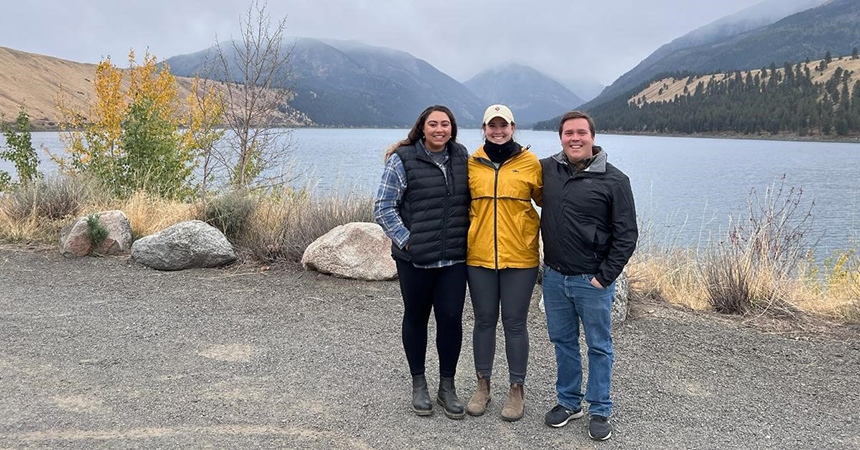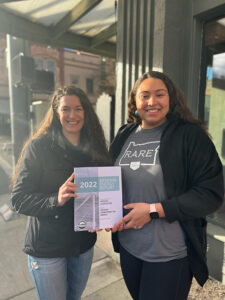
This post is part of a series featuring 2023 members of the University of Oregon’s Resource Assistance for Rural Environments AmeriCorps program focused on energy.
Raised on a cattle farm in rural Oregon, Angela Singleton says she had the benefit of growing up “half rural, half urban.”
Singleton lived in a small community but attended high school in a suburban area. Later she attended Portland State University, where she earned her bachelor’s degree in environmental science and a master’s degree in public administration.
Now, Singleton is one of seven RARE members supporting energy efforts in rural Oregon as part of University of Oregon’s Resource Assistance for Rural Environments (RARE) AmeriCorps Program.
“We’re not just trying to make sure people have energy in their homes, but also understanding what factors influence their personal lives out here,” she said.
RARE places graduate level individuals in rural communities to support economic, social and environmental development. Members are placed with agencies across the state, typically nonprofit organizations or local governments.
Energy Trust supports RARE members interested in energy through mentoring from regional outreach staff on energy efficiency and renewable energy topics, and in some cases, through financial contributions to their community sponsorships.
Singleton is working with the Oregon Department of Energy (ODOE) in Pendleton as liaison to Eastern Oregon, bringing her unique perspective of rural communities. She helps connect communities with ODOE incentives, programs and funding to support local engagement in rural cities, tribes and environmental justice communities.
“We’re grateful Angela has brought her skills and enthusiasm to ODOE as we focus our efforts on ensuring an equitable transition to a clean energy future,” said Ruchi Sadhir, Associate Director for Strategic Engagement at ODOE. “Angela is strengthening our outreach in Eastern Oregon communities to ensure they know about the services and programs ODOE can provide – and so we can better understand their unique energy needs and interests.”
This work has challenged her ideas of what rural access means, and that it is different for each community despite how similar they may seem from the outside. Singleton hopes her position, which is new to ODOE, will benefit rural communities that, for many reasons, may not be involved in conversations around energy.
A key lesson has been that rural communities work at their own pace and within their own means.
“In order for programs to be effective in rural areas, we have to understand the resource gaps they experience. How folks are thinking and accessing things in rural areas is much different than in metro areas,” she said. “It doesn’t matter how much money you have or what you’re willing to offer. It has to be what the community needs and when they need it or when they’re ready for it.”
Energy Trust Eastern Oregon Outreach Manager Caryn Appler connects with Singleton often, serving as both a mentor and advocate.
“I really enjoy getting to know the RARE members each year and learn how Energy Trust offers and programs can help support their work,” Appler said. “These RARE members fill a large gap bringing much needed capacity to local agencies in order to advance energy saving projects and generate clean energy in rural communities.”
In addition to her ODOE work, Singleton said her favorite role so far has been helping the other RARE members.
“I have a lot of experience under my belt now and have an understanding of how state and federal dollars can be used to fund projects. I love hearing what people are interested in and trying to figure out how to help them do it,” she said.

